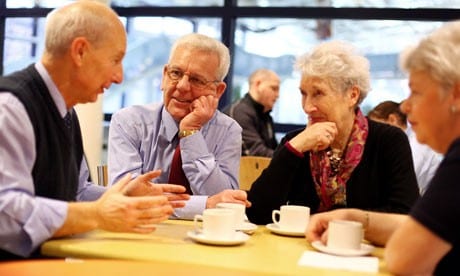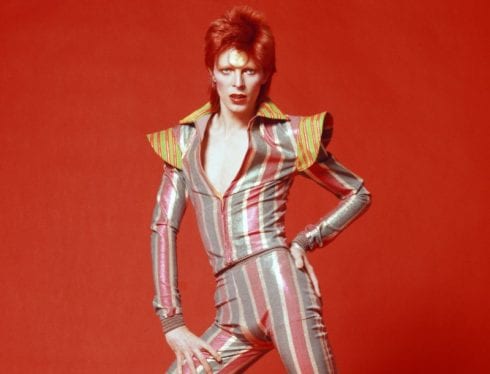 Young people in Britain were shocked by the results of the Brexit vote last week.
Young people in Britain were shocked by the results of the Brexit vote last week.
A large margin of youths supported remaining in the European Union while many of their parents and grandparents did not.
However science may help to explain this generational gap.
Scientists have found that older people tend to be more conservative than their youthful counterparts.
The time period that a person is born into plays a part in forming their worldviews but aging is important as well.
A 2011 study found that the older people surveyed had decreased levels of openness to new experiences.
Because openness tends to predict liberal attitudes, this finding is important in studying the effect of aging on political views.
One explanation might be that people tend to minimize uncertainty and ambiguity as they age.
But while older people may tend to be more conservative does not mean that they can’t adopt more liberal views. In fact, older generations and the world in general have become more tolerant.
As psychologist Bill von Hippel found, older people want to be fair and unprejudiced.
It simply takes more mental effort as we age.
Click here to read more News from The Olive Press.









Reason for Brexit in a nutshell.
Prevailing culture and existing brain structure dissonance is less tolerable with aging. Which means that broader experience from childhood through young adulthood ‘wires’ brain for more tolerance of change, and by way of contrast, little novelty in the way of ideas, food, sound, ie, language and music, ‘wires’ brains to view change as ‘wrong’ and emotionally painful, even though such changes are not necessarily bad.
This is the neurobiological basis of ‘cultural tradition’ or close-minded conservatism, the refusal to experience new things. Religious rituals, orthodoxies and political ideologies of all kinds, whether Tory, Labour, Tea Party, Zionist, Leninist or any other ‘isms’ serve to constantly reinforce existing brain structures at the expense of neural elaboration, what Piaget called cognitive accommodation.
‘Brain and Culture, Neurobiology, Ideology, and Social Change by Bruce E. Wexler is an excellent non technical summary of this human phenomena.
Prevailing culture and existing brain structure dissonance is less tolerable with aging. Which means that broader experience from childhood through young adulthood ‘wires’ brain for more tolerance of change, and by way of contrast, little novelty in the way of ideas, food, sound, ie, language and music, ‘wires’ brains to view change as ‘wrong’ and emotionally painful, even though such changes are not necessarily bad.
This is the neurobiological basis of ‘cultural tradition’ or close-minded conservatism, the refusal to experience new things. Religious rituals, orthodoxies and political ideologies of all kinds, whether Tory, Labour, Tea Party, Zionist, Leninist or any other ‘isms’ serve to constantly reinforce existing brain structures at the expense of neural elaboration, what Piaget called cognitive accommodation.
‘Brain and Culture, Neurobiology, Ideology, and Social Change by Bruce E. Wexler is an excellent non technical summary of this human phenomena.
Yes, it is likely that elderly do not want change, unless ‘open-mindedness’ has been an enculturated habit.
Or, more simply, use it or lose it! No wonder Anthropologists write all those long and boring papers lol.
Much more complicated than that as just instanced. Reducing complexity to simplicity to fit with one’s cognitive habits is the problem. And it gets more pronounced with age.
Much more complicated than that. Reducing complexity to simplicity is the problem, and it gets more pronounced with age.